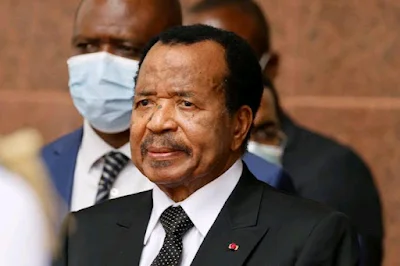Cameroon’s Constitutional Council has declared President Paul Biya the winner of the October 12, 2025, presidential election, granting him an eighth term.
The 92-year-old incumbent captured 53.66% of the votes, surpassing main challenger Issa Tchiroma Bakary’s 35.19%.
“Hereby proclaimed President-elect: the candidate Biya Paul,” stated Council President Clement Atangana during the Monday announcement.
This victory prolongs Biya’s leadership, which started in 1982, potentially until 2032, when he would approach his 100th birthday.
The figures suggest a solid, if narrowed, endorsement. Yet, in a nation of 28 million, where half the population is under 19, the outcome provokes sharp division.
Biya’s supporters hail it as proof of enduring stability; detractors see it as the latest chapter in a prolonged grip on power that skirts democratic renewal.
A Rule Spanning Generations
Biya’s tenure now exceeds 43 years, outlasting most Cameroonians’ lifetimes. He eliminated term limits in 2008, a move critics label a constitutional coup enabling indefinite rule. Defenders credit him with steering Cameroon through economic booms in oil and agriculture, maintaining relative peace compared to neighbors ravaged by coups and extremism.
The country has avoided the military takeovers that felled governments in Niger and Gabon, positioning Biya as a bulwark against chaos.
But objectivity reveals cracks. Economic growth averages 3-4% annually, insufficient for a youth bulge facing 13% unemployment. The Anglophone crisis since 2016 has displaced hundreds of thousands, with government responses heavy on security rather than negotiation.
Biya’s frequent absences often for medical reasons abroad fuel rumors of frailty, raising succession anxieties in a system lacking clear alternatives.
Fraud Allegations Ignite Fury
The election’s shadow is fraud. Tchiroma declared himself victor days earlier, citing parallel counts giving him 54.8% against Biya’s 31.3%.
“This is no election; it’s theater,” he charged, calling for mass protests against “manipulated outcomes.”
His allies point to outdated voter registers, stuffed ballots, and intimidation in rural areas. Biya’s Cameroon People’s Democratic Movement rejects these as baseless, insisting the process was transparent.
Prominent opponents were sidelined: one disqualified for prior boycotts, another for procedural lapses. Even Biya’s family isn’t unified a daughter publicly opposed his candidacy.
Independent observers noted low urban turnout, relocated stations in opposition zones, and a national participation rate around 52%. The Council, appointees of Biya, dismissed challenges swiftly, validating results in hours.
Violence Erupts on the Streets
Pre-announcement tensions boiled over. In Douala, clashes between protesters and forces claimed at least four lives and led to over 100 arrests. Tear gas filled markets; batons met stones.
Similar scenes unfolded in Yaoundé, with reports of targeted detentions of activists and journalists. This echoes 2018’s post-election crackdown, where dozens died. Security budgets consume 20% of national spending stability, or suppression?
Africa’s Aging Autocrats: A Pattern?
Biya joins a club of octogenarian leaders: Uganda’s Museveni (80), Equatorial Guinea’s Obiang (82). Critics argue such longevity breeds corruption, nepotism, and stagnation, alienating youth demanding change.
Cameroon’s under-35s, over 70% of the population, inherit debt and inequality while elites thrive. Yet, abrupt transitions risk vacuum Biya’s steady hand, flawed as it is, has contained Boko Haram and separatists.
Mandate or Manipulation?
Biya’s 53.66% is his tightest win, an 18-point gap to Tchiroma in a splintered field. Rural strongholds delivered 90% support; cities lagged. Was this genuine loyalty or engineered? The Council’s speed in certification invites skepticism.
This term could be Biya’s last or not. Health, succession, and reforms loom. Will he address Anglophone grievances, curb corruption, empower youth? Or entrench further? Tchiroma vows legal fights, hinting at instability.
In a continent yearning for fresh blood, Biya’s reign poses a provocative query:
Does experience justify eternity, or does it doom democracy? Cameroon’s future hangs on the answer, one that streets, not just ballots, may decide.
READ ALSO: Henriette Lagou Rallies Support in Ivory Coast Presidential Race




















